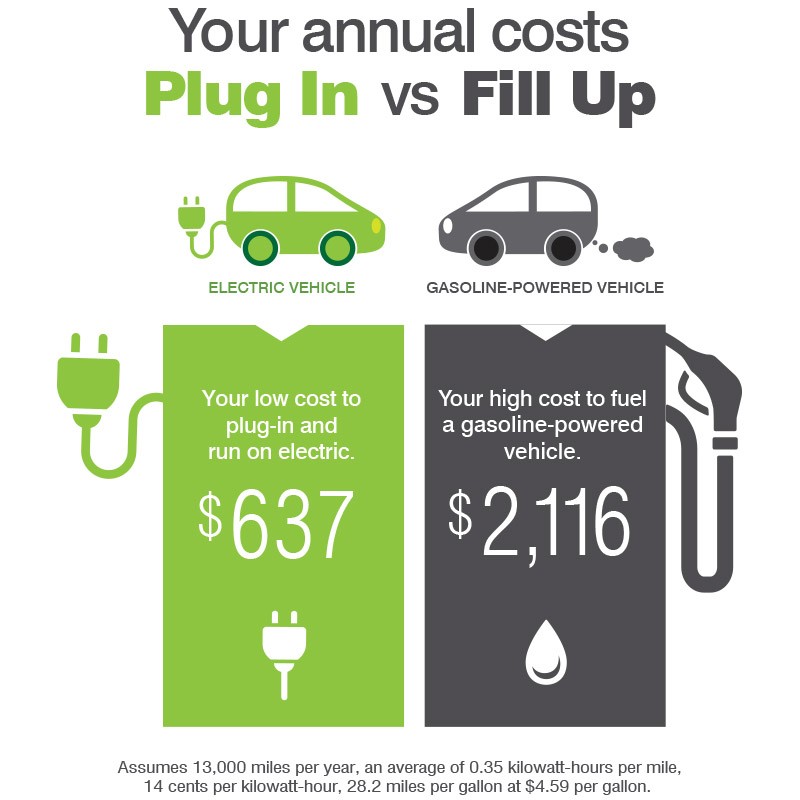
Smaller hybrid cars can help you save money on your fuel bill. They are fun to drive, whether on the highway or in stop and go traffic. If you're shopping for a new car, you should consider a hybrid. This is a great way for you to save gas and reduce your carbon footprint.
There are many hybrids available, from small hatchbacks all the way up to large SUVs. There are also plug-in hybrids that use a battery to provide electric power. While most of these hybrids are SUVs, some of the best options for small hybrids are midsize sedans.
The compact Lexus CT200h has a clean interior that is complemented by a high level of refinement. You will love the comfortable and spacious cabin that has been updated for 2014. You can select the F-Sport trim for a sportier package. It is a petrol-hybrid engine of 2.0-litres, which delivers an EPA-rated 50 mpg for city driving and 60 mpg over the highway. The EV mode is rated at 26 miles of pure-electric driving, while the REX mode gets you 39 mpg.

Honda's Civic, a compact sedan in a classic design, is now available with a hybrid engine. The battery is located under the rear seat, helping to reduce the front weight bias. The car's total power output is 109 HP and it can reach 60 mph in 9.4 seconds. It's not as smooth, but it's still a strong all-round performer. In addition to fuel economy, the hybrid system improves handling by reducing the front weight bias.
Toyota Yaris, another small hybrid choice, is also available. The Yaris is a compact hybrid but has an electric motor and a battery that give it some edge. The Yaris's EV modes reduce local emissions and its acceleration is smooth, responsive, and part-throttle. The Yaris is also equipped with Apple CarPlay and Android Auto. It's a small, efficient car with plenty of features.
The Lexus UX250h Hybrid offers a similar high-quality interior. It offers a spacious boot and a 2.0-litre petrol hybrid engine. It is also a very smooth ride. It's one small hybrid that is very easy to drive on highways. You'll be amazed at the range you can travel without needing to recharge your battery. It's rated at 50 mpg on long trips, and it feels more like a traditional luxury car than the competition.
The Ford C-Max Energi is a plug-in model, and is rated at 88 MPGe with a plug-in battery pack. This is an excellent choice for anyone looking to buy an economical hatchback. Although the CR-V may not be the sportiest SUV, it is reliable and offers decent tech.

A good option for small-car owners is the Ki Optima Hybrid. This hybrid delivers exceptional fuel efficiency while the interior features are well-designed and feature-packed.
A few more top-rated small hybrids include the Toyota Camry and BMW i3. The Ki Optima has a better overall ownership record in the UK than the Avalon & Corolla, but it is a superior choice.
FAQ
How long is an automotive course?
An automotive course lasts for three years.
The first year is dedicated to theory and learning about cars. The second year is spent on practical training where you learn how to drive, fix engines, and do other mechanical jobs around the car. The final year is spent doing a placement at a local garage, which gives you experience in fixing real-world problems.
How long is an automotive mechanic apprenticeship
It takes approximately three years to complete an automotive mechanic apprenticeship. This includes two years in school and two as an apprentice. The first year is dedicated to learning the theory and practical skills of the trade. During this time, you'll also learn how to use tools safely and efficiently. After the first year, a second year will be spent on-thejob training. This year you'll get experience in different trades. These periods will also give you the chance to take formal courses.
The final year is dedicated to earning certifications and qualifications in the field. These include NVQs (National Vocational Qualifications), which are awarded after passing exams covering specific topics within the industry. Additionally, HNCs are Higher National Certificates that cover general subjects such management, customer service, and business administration. City & Guilds certificates can be obtained for individuals who want to learn certain trades.
Is it difficult to find a job as a mechanic in the automotive industry?
It can be done. Many garages advertise their vacancies online, and many people apply just because they think it might be fun. Try applying to a few jobs and seeing if the garages accept student applications. You could also ask your family and friends if they know anyone in the industry. You might be able to refer someone.
Is it hard to be an apprentice mechanic?
It is not easy but it can be done quickly. There are many opportunities for advancement.
You must have patience and perseverance. You should also be able to repair cars, trucks, and motorbikes.
Customers and family members can put a lot pressure on you. They want you to succeed. But you should never feel pressured into making decisions you aren't comfortable with.
If you like fixing cars, this could be a great career option. You can make a decent living and build your business.
Perhaps you prefer a different route. Consider becoming a technician.
This means that you can use your technical knowledge to help other workers. You might be able to assist technicians in troubleshooting problems or teach them new techniques.
You can also become a service advisor. As a service advisor, you will provide assistance and advice to customers as they bring their car to a garage.
Your choice is based on what you choose to do. There are plenty of options available, and you can choose which suits you best.
What are the qualifications for an automotive technician
You must have completed high school or GED with good grades in maths and English. You also need to be able to read and write well. The written test will be passed and you will then have to take several practical exams before you can begin work.
What qualifications do you need to be a truck-mechanic?
This job requires you to be a skilled mechanic, although you do not need any formal training. You are a valuable asset as you can quickly diagnose and solve problems efficiently.
Also, your knowledge of diesel technology will be a benefit as you can help us understand which parts are needed for our vehicles.
Statistics
- 52% of Mechanics in the United States think their salaries are enough for the cost of living in their area. (indeed.com)
- There were 749,900 jobs available for automotive service technicians and mechanics in 2016, which is expected to grow by six percent through 2026. (jobhero.com)
- The U.S. Bureau of Labor Statistics (BLS) reports that the job outlook for automotive service technicians and mechanics is expected to decline by 4% from 2019 to 2029. (indeed.com)
External Links
How To
How to become an Automotive Technician
Automotive technicians provide repair and maintenance services to vehicles. He/she works in car dealerships as well as auto shops, garages, and service centers. He/she assists customers in fixing their cars, trucks or motorcycles. An automotive technician must know how to diagnose problems and perform repairs efficiently, safely, accurately, quickly, and correctly.
An associate degree should be obtained from a vocational school if you wish to work as an auto technician. After completing the program, he/she must take the National Institute for Automotive Service Excellence certification exam. ASE stands as American Society of Mechanical Engineers. Two sections make up the ASE certification examination. The first section tests for mechanical knowledge, the second for practical skills. To pass the test you must go to one of the authorized testing facilities. These locations are available online or through your local automotive dealer.
After passing the test, a candidate must pass an examination in order to be licensed as an automotive technician. This process can vary depending on where the applicant lives. Some states require that candidates attend training courses, while others permit them to learn independently. Some states permit technicians to work immediately after they are granted their license. Others require them to wait at least six consecutive months before they can be licensed.
To become an automotive technician, one must apply at a local dealership. Most new employees work as apprentices after they have been hired. Apprenticeship programs last about three years. Students learn basic repair skills such as changing oil and adjusting brakes, changing tires, cleaning spark plugs and inspecting engine compartments. Some students are taught how to repair engines and replace transmission fluids. Most schools offer classes during regular business hours. Some schools also offer evening classes when needed.
Once a student is done with his/her apprenticeship he/she can become a master journeyman. Journeymen can spend up to five years learning how major systems work, including transmissions, differentials. They also learn how to adjust steering gear and suspensions. They learn how to do complex repairs such as remanufacturing engines, rebuilding transmissives, and troubleshooting electronic components. Because they have the experience and knowledge to do the job right, employers love hiring journeymen.
If a candidate successfully passes the required exams and receives a license, he/she might want to consider starting his/her own shop. According to the Bureau of Labor Statistics, nearly 1.7 million automotive mechanic jobs were available in 2010. This number is expected to increase by 18% between 2009 and 2020. When a candidate plans to open his/her own shop he/she should be ready to invest thousands of dollars in equipment.
Many factors affect the automotive technician's salary, including location, education, experience, and employer type. On average, a jobless person could expect to earn $20,000 annually. Someone who has only a highschool diploma could earn around 21,000 dollars per year. Those with an associate's degree earned approximately $24,000 per year. A technician with a bachelor's degree earned approximately $27,000 annually. Master's degree holders make around $32,000 annually. Salary increases can be common. A professional who earns less that $30,000 today could reasonably expect a $40,000 increase in the next few decades.